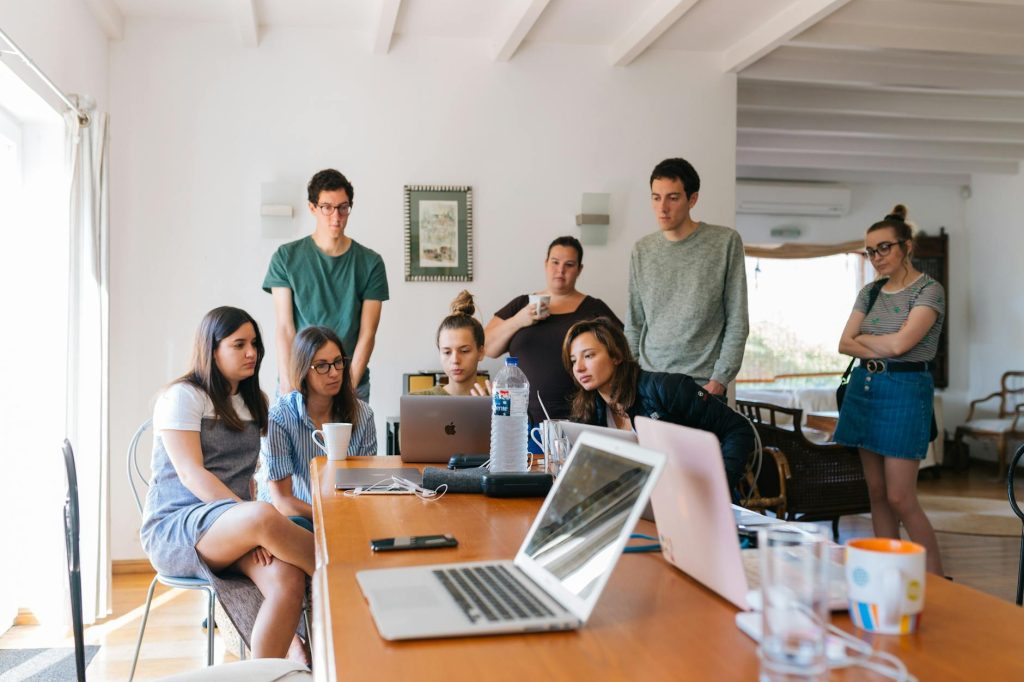When I first started working in the Dominican Republic, I underestimated how important small talk was. Coming from a fast-paced U.S. workplace, I initially found the relaxed rhythm of Caribbean office life surprising. Meetings started with a chat about family, weekend plans, or local events before diving into business. Quickly, I learned that mastering office small talk in Spanish wasn’t just about language—it was essential for building trust and friendships at work.
Understanding the Role of Small Talk
In the Dominican Republic, like much of Latin America, personal relationships matter deeply in business settings. It wasn’t enough to simply greet colleagues with a curt “Hola, ¿cómo estás?” and then bury myself in tasks. Instead, colleagues took genuine interest in each other’s lives, families, and personal milestones. This camaraderie often translated into stronger professional relationships and smoother teamwork.
I first realized the importance of this when my colleague José approached me one Monday morning, smiling warmly and asking, “¿Qué tal tu fin de semana? ¿Pudiste descansar o saliste con la familia?” (“How was your weekend? Did you manage to rest or did you go out with the family?”) I hesitated, initially uncomfortable sharing personal details. However, when I mentioned I had visited a nearby beach, José’s face lit up. We ended up sharing recommendations for beaches and weekend getaways, transforming our interaction from mere politeness into genuine connection.
Asking About Family and Kids
I soon noticed that conversations frequently turned to family. Colleagues often proudly displayed photos of their children at their desks. Learning to navigate these conversations was crucial. One morning, I asked María, our team’s project manager, about her kids after noticing their pictures. “¿Cómo están tus hijos? ¿Ya regresaron al colegio?” (“How are your kids? Have they already returned to school?”) María’s response was filled with joy and detail: “Sí, ya comenzaron esta semana. Están felices pero cansados con tanto estudio.” (“Yes, they started this week. They’re happy but tired from so much studying.”)
Another time, I asked Luis, “Vi una foto en tu escritorio, ¿cuántos años tienen tus niños?” (“I saw a photo on your desk, how old are your kids?”) He replied with pride, “La mayor tiene ocho años y el pequeño acaba de cumplir cinco.” (“The oldest is eight years old and the youngest just turned five.”) Such conversations created genuine bonds.
Discussing Weekend Plans
As the week progressed, the topic of weekend plans became a regular Friday ritual. Colleagues commonly asked each other, “¿Tienes planes para el fin de semana?” (“Do you have plans for the weekend?”) Initially, I found it hard to respond beyond simple, vague answers. But soon I discovered sharing specifics—like visiting a local event or trying a new restaurant—often opened the door to richer conversations and even invitations.
When I told my colleague Luis, “Este fin de semana planeo visitar Jarabacoa para hacer senderismo,” (“This weekend I plan to visit Jarabacoa to go hiking,”), his enthusiasm was immediate. “¡Qué bien! Tienes que visitar el Salto de Jimenoa, es precioso,” (“Great! You have to visit Salto de Jimenoa, it’s beautiful,”) he recommended excitedly. Another Friday, I asked Claudia, “¿Qué harás este fin de semana?” (“What are you doing this weekend?”) She cheerfully responded, “Voy a Punta Cana con mi familia, necesitamos descansar un poco.” (“I’m going to Punta Cana with my family, we need to rest a bit.”) Sharing plans led to suggestions, advice, and sometimes group outings, creating a vibrant community spirit at work.
Engaging with Company Events
Upcoming company events were another frequent topic of casual conversations. These chats not only kept everyone informed but also helped build excitement. “¿Vas a asistir al evento de la empresa la próxima semana?” (“Are you going to attend the company event next week?”) became a common question. When I asked this to Claudia, our HR manager, she shared her anticipation about the event’s theme and activities, helping me feel more connected and engaged.
Before attending my first company holiday party, I casually asked a coworker, “¿Sabes cómo suelen ser las fiestas de la empresa aquí?” (“Do you know what the company parties are usually like here?”) Her laughter and detailed description prepared me well, reducing my anxiety and increasing my enjoyment of the event. Another conversation about an upcoming team-building day went like this: “¿Estás listo para el día de integración? Me dijeron que habrá actividades interesantes,” (“Are you ready for the team-building day? I heard there will be interesting activities,”) said Juan. My reply, “¡Claro que sí! Estoy emocionado por conocer mejor al equipo,” (“Absolutely! I’m excited to get to know the team better,”) strengthened my integration into the group.
Celebrating Company Growth
Another area ripe for small talk was discussing company successes and growth. Acknowledging these achievements showed colleagues that I was invested in our collective progress. After a particularly successful quarter, I commented to my supervisor, “Increíble cómo ha crecido la empresa últimamente, ¿verdad?” (“It’s incredible how much the company has grown lately, isn’t it?”) This acknowledgment sparked a positive dialogue about team efforts and future opportunities, reinforcing a sense of collective achievement.
Similarly, I shared with my coworker Ana, “Estoy impresionado con los nuevos clientes que conseguimos este trimestre,” (“I’m impressed with the new clients we acquired this quarter,”) and she enthusiastically responded, “Sí, ha sido un esfuerzo conjunto excelente,” (“Yes, it’s been an excellent team effort,”) further solidifying our mutual respect.
Congratulating Colleagues on Promotions
Nothing builds goodwill like recognizing and celebrating your colleagues’ personal successes, such as promotions or professional achievements. When my teammate Ana received a promotion, I took the initiative to congratulate her personally: “¡Felicitaciones por tu promoción, Ana! Realmente mereces este reconocimiento.” (“Congratulations on your promotion, Ana! You truly deserve this recognition.”)
When Carlos was promoted to manager, I warmly congratulated him: “Carlos, muchas felicidades por tu nuevo puesto, estoy seguro de que harás un excelente trabajo,” (“Carlos, congratulations on your new position, I’m sure you’ll do an excellent job,”) earning a grateful smile and strengthening our professional bond.
Moving Beyond Basic Small Talk
Over time, my small talk skills improved significantly, moving beyond basic questions to deeper, more meaningful interactions. What began as obligatory social niceties evolved into genuine curiosity and empathy about colleagues’ lives. I learned to ask follow-up questions and actively listen, creating stronger relationships and trust within my team.
Final Reflections on Small Talk
Mastering Spanish office small talk wasn’t just about language; it required cultural awareness and sensitivity. By observing my Dominican colleagues, I saw how effectively they balanced professional and personal discussions. Adopting their conversational style helped me integrate better into office life, making work not only productive but genuinely enjoyable.
Today, whether discussing weekend plans, asking about family, or celebrating successes, I appreciate the immense value of small talk. It’s a powerful tool for building rapport, trust, and friendship in the workplace, especially in cultures that prioritize relationships. My advice to any expat professional in a Spanish-speaking workplace: embrace these small conversations. They’re anything but trivial—they’re essential building blocks of a supportive, collaborative, and friendly office environment.





